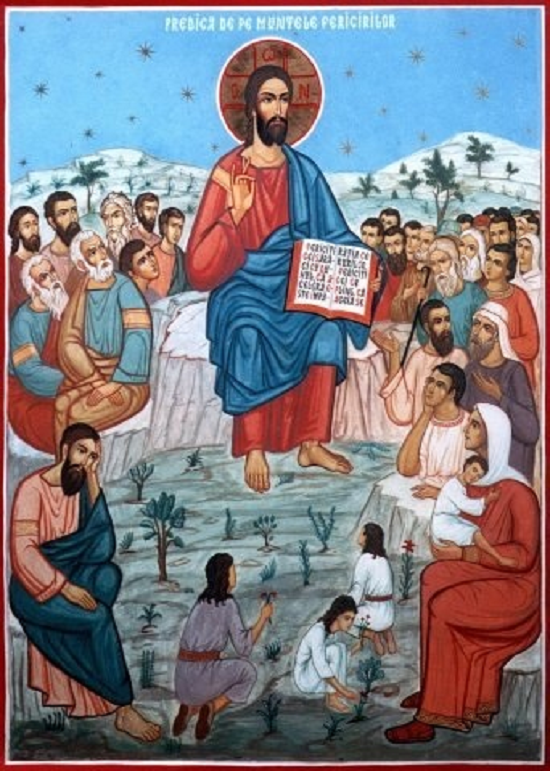Obeying the Law
Sixth Sunday Scripture Readings

There’s an old saying among Evangelical Christians that goes, “God said it; I believe it; that’s good enough for me.” I hope that, after spending some time with my homilies, you can appreciate how naïve that statement can be. It seldom works out well to take the gospel readings at what appears to be face value. God’s message to us is seldom that simple and straightforward. We’re dealing with the word of God, after all. Nothing in the Scriptures suggests that God’s communications to us are simple. In fact, it’s just the opposite. They’re profound.
Today’s gospel deals with law and obedience to the law. Jesus says, “Do not think that I have come to abolish the law or the prophets.” His comments aren’t restricted to the Law of Moses, the law taught by the scribes and Pharisees. The phrase, “the law and the prophets” was what people in Jesus’s time used to refer to the entire Hebrew Scriptures. They didn’t have a word for “Bible.” Even later on, when they started to use the word, תנך (Tanakh) to refer to the Scriptures, it was an acronym “TNK” standing for the law (תורה – Torah), the prophets (נביאים – Nebi’im), and the writings (כתובים – Ketubim): תנך (TNK). So, in effect, what Jesus said was, “Do not think I’ve come to abolish the Scriptures. I have come not to abolish but to fulfill.”
He then talks about those who break or ignore even the least important command of the law and who teach others that it’s okay to do the same. He’s talking about the scribes and Pharisees who, in their attempt to follow slavishly the law in its most extreme literal detail, found themselves in a difficult situation. The stipulations were so minute that it was practically impossible to follow them all at the same time. The scribes and Pharisees taught people how to micromanage the law. That’s why Jesus said they’d be the least in the Kingdom of Heaven. Remember that the “Kingdom of Heaven” means in other words the reign of God on earth. Jesus says that the loophole-finders would find themselves last in line in God’s reign.
Jesus is preaching against literalism and fundamentalism. The scribes and Pharisees were obsessed with figuring out how far you could go without actually breaking a law or commandment. They were okay with you only bending or bruising it, so long as you didn’t break it. It reminds me of the story of the kid whose mother caught him masturbating. “Stop that,” she scolded. “You’ll go blind.” He naturally responded, “Can I do it just until I need glasses?”
Jesus brought up several specific examples to demonstrate how he viewed obedience to the law differently from the scribes and Pharisees. The first example he chose was the commandment, “You shall not kill.” The scribes and Pharisees went to great lengths to determine exceptions to the commandment. Obviously, first-degree murder was absolutely forbidden. But how about second-degree murder? Was that ever allowable? How about voluntary manslaughter? Involuntary manslaughter? Jesus would have none of that. He turned the discussion away from the letter of the law and went right for the core—the heart of the matter. Never mind the details, what anger was in the heart and mind that would lead someone to kill? Get to the root of the problem and forget about trying to dissect the results. If you don’t want the results, eliminate the causes.
In each of the cases Jesus presents in today’s gospel, he proposes a spiritual solution that will remove the cause of whatever behavior is contrary to the will of God, and therefore opposed to God’s reign. Sadly, the Christian Churches haven’t paid sufficient attention to this sermon of Jesus’s. We’re still trying to judge our behavior by the letter of the law, be it the Ten Commandments or the precepts of the Church. Once again, the antidote to the world’s problems lies in a metanoia—a change of mind and heart—for the world’s populations. We need to get out of the mentality that seeks exceptions to the rules and instead start living by a commitment to acceptance of life on life’s terms and surrender to the will of God, which is simply to live in unconditional love for all of creation. In God’s kingdom, all are worthy of his love. No one needs to prove their “worthiness” for our love, care, or concern. “I tell you,” Jesus says, “unless your righteousness surpasses that of the scribes and Pharisees, you will not enter the Kingdom of Heaven.” Keep in mind as you meditate on these words that, for Jesus, “righteousness” meant having in yourself the mind of God. Jesus fulfilled the law and the prophets by his unconditional love without exception, and that is how we, as his followers are called to obedience.
Get articles from H. Les Brown delivered to your email inbox.
